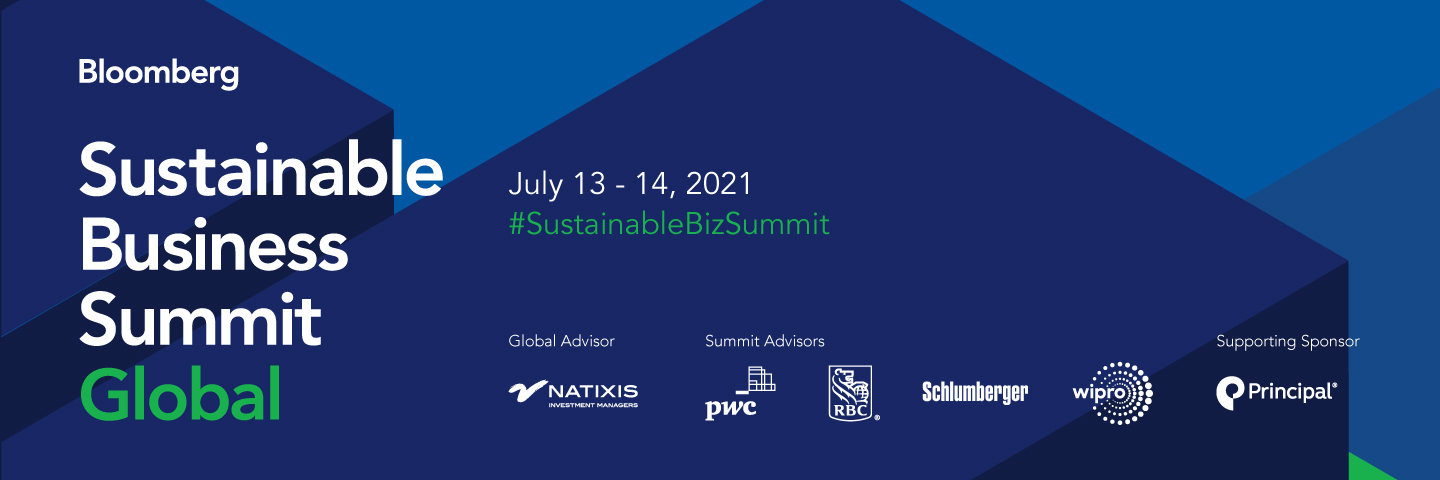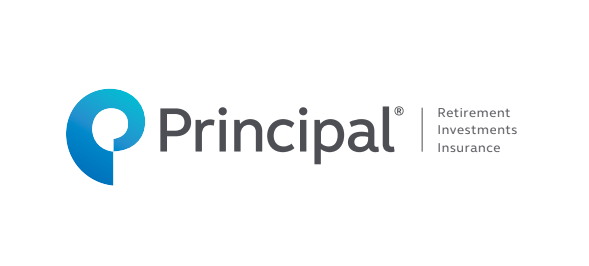
Event Highlights:
Day 2, Block 1
In a conversation with Bloomberg TV’s Francine Lacqua, Mairead McGuinness, Commissioner for Financial Services, Financial Stability, and the Capital Markets Union, European Commission, said the financial system is subject to real instability because of climate change. McGuinness stressed that the EU has made legal commitments to reduce emissions and be climate neutral by 2050- and private capital flows are essential to achieving that goal. “There is a responsibility on investors to look in a sustainable way. €350bn (around $414bn) additional investment every year will be required in Europe to meet our 2030 target,” McGuinness said. McGuinness added that greenwashing in the financial sector remains a big concern, and that auditors need to examine milestones and targets to create a “fear factor” for companies.
In a conversation with Bloomberg TV’s Caroline Hyde, Unilever’s CFO Graeme Pitkethly said the blueprint of the company’s sustainable practice goals started 10 years ago with the Unilever Sustainable Living Plan (USLP). In the last decade, Unilever has fully integrated the plan into Unilever Compass, the current corporate strategy. Pitkethly remarked that data collection is key to combating climate change, and that although “there isn’t one template that can be applied, mandatory TCFD reporting is a good jumping-off point.” Pitkethly reiterated that consumers, particularly younger ones, are increasingly sophisticated. “Those younger consumers make up more and more of the addressable market. They will quickly understand if a company is taking genuine action,” Pitkethly said.
In a panel discussion with Bloomberg TV’s Alix Steel, Bridgewater’s Co-CIOs for Sustainability, Carsten Stendevad and Karen Karniol-Tambour, shared how the firm is creating impact through investing. Karniol-Tambour said one of the early decisions Bridgewater made was it would not build some “other” sustainability function. “We weren’t going to have the ‘real’ investors, and over there we have the sustainable investors who will show up after the fact. It needs to be in our bloodstream,” she said. Stendevad said “the most important thing when it comes to sustainability is to think about issues relating to social and environment- the extent to which they affect all of our portfolios.” Stendevad said the sweeping climate change plan unveiled by the European Union will have profound implications on the macro economy, capital flows and investor behavior.
Last month, an activist investor waged a battle with ExxonMobil to install three board directors with the goal of pushing the energy giant to more aggressively reduce its carbon footprint. Jennifer Grancio, CEO of the hedge fund Engine No. 1; Lorraine Kelly, Head of Governance Solutions of the proxy advisor ISS; and Aeisha Mastagni, Portfolio Manager at CalSTRS, the second largest public pension fund in the U.S., recounted the David and Goliath saga to Bloomberg’s Deals Reporter Scott Deveau. Grancio said to make changes happen at places like Exxon, you have to “have the right people on the board.” Influential proxy advisor Institutional Shareholder Services (ISS) came out in support of Engine No.1 and backed three dissident candidates to the board. Kelly, ISS’ Head of Governance Solutions, said the ExxonMobil outcome was a watershed moment, as investment managers traditionally held “their vote decisions close to the vest,” but BlackRock and Vanguard both issued detailed analysis on their decision to support Engine No.1 on the day of the vote. Mastagni from CalSTRS said there were “some milestones that led us to the decision to partner with Engine No. 1 to change the leadership inside the boardroom.” Mastagni said a tipping point was when ExxonMobil ignored a proposal by investors and shareholders to produce a report on the risk of climate change to the organization, which signaled that the company didn’t have a long-term strategy for a transition to a low-carbon economy.
Day 2, Block 2
To start the block, Dr. Karin Kimbrough, Chief Economist, LinkedIn, spoke about the intersections among green skills, green jobs, and the future of work, and how much take up there is right now by employers for green skills. “When we look at hiring rates across the range of different countries that we can see — and at LinkedIn we have a span of a network that covers the whole globe with 700 million members, 55 million companies — what we’re seeing is that the hiring rates of people with green skills is one and a half times faster than for those without green skills,” she said. “So it’s telling us to some degree that there is a demand, if you will, by employers for green skills. People are getting hired more quickly when they have them and it’s not really a surprise to us.”
In the next session, Kjersti Lund; Head of Europe; Designit, a Wipro Company; Liza Chong, CEO of The Index Project; and Phil Hall, Global Content Lead, Designit, a Wipro Company, spoke about sustainability by design. Chong said that the pandemic has afforded an opportunity to reset a “growth at all costs” business mentality. “I think maybe also the challenges for businesses is to look at new ways of measuring success and, you know, redesigning that,” she said. “You know, we’ve mostly come to agree that growth at all costs is just a mentality that we have to move away from. It’s eroded our planetary boundaries and it’s something that we have to address urgently. So, you know, strategies and plans and you know, things that just only focus on growth and growth at all costs really have to be rethought.”
Lund said that sustainability is not just about the environmental issues but also about social responsibility as well. “I think this is where design and innovation plays a huge part actually…to rethink, but also create new solutions that still is desirable for us as human beings, but are also thinking about the planet and social responsibility while we’re doing that.” (Wipro is a Sustainable Business Summit Advisor and a sponsor of this event.)
Next, Eric Roston, Reporter, Bloomberg Green, hosted a conversation with top executives from the LEAF coalition who shared how they are working to mobilize at least $1 billion in financing to protect tropical forests. “The LEAF Coalition is really designed to address tropical and subtropical deforestation at scale,” Eron Bloomgarden, Executive Director, Emergent, said. “It recognizes that no one sector has the tools alone to deal with this massive issue—the public sector, the private sector, philanthropy, civil society. So, the LEAF Coalitions is a public/private partnership designed to unlock massive new flows of capital to really change the incentives on the ground to reverse deforestation.”
Matthias Berninger, Senior Vice President Public Affairs, Science & Sustainability, Bayer, said, “For us, LEAF combines two very important things: It’s a measure that will block land use change and it will help to remove carbon out of the atmosphere. And what I like most about it is the approach that brings together a civil society and governments on one hand and business as a third partner. Because this sort of uncommon collaboration is needed to tackle this challenge.”
“From our perspective, offsetting I know has sort of connotations and a challenge, but it isn’t a binary choice,” Claire Lund, Global Vice President – Sustainability, GSK, said. “We have to do more, further and faster, on climate change and nature loss. So we have to do reductions—absolutely have to be critical in terms of what we’re doing from our own site perspective, our own supply chain perspective to reduce our own emissions and impact on the environment. There is also protecting the environment that is already there, and it’s madness if we think we can sort of reach some of these targets and goals without protecting what’s already existing, and then also do the removals and the additionality piece as well. So it isn’t a binary choice. It is all aspects of systemic change, and frankly not sequential.”
In the following session, Sonali Basak, Wall Street Reporter, Bloomberg spoke with Maya Chorengel, Co-Managing Partner, The Rise Fund and Kelly Schmitt, CEO, Benevity about financing the “S” in ESG. Schmitt explained that Benevity is a SaaS platform used by almost 700 purpose-driven companies to engage stakeholders around their ESG initiatives. “Benevity’s mission as a company or as we call it, our moon shot, is really to act as a catalyst to infuse a culture of goodness into the world,” she said. “We are helping companies help their people to be their best selves by connecting them with a sense of purpose to deliver not just social impact but business impact as well.”
Chorengel said that the Rise Fund invests in companies across a series of sectors that are very intentionally focused on increasing social and environmental impact. “The Rise Fund was interested in partnering with companies and providing growth capital to companies that are very explicitly helping other enterprises to increase the good that they can do in the world and Benevity is a fabulous example of this,” she said. “Importantly, what Benevity does…is allow companies to amplify and scale impact on the ground because of the services that Benevity provides.”
In the last session of the block, Karen Toulon, Equality Chief Correspondent, Bloomberg, spoke with a group of Chief Diversity Officers about building the diverse workforce of the future. “You know, change starts really by listening to the hearts and minds of our employees and we’ve got a really robust internal census survey process,” said Alicia Petross, Chief Diversity Officer, Hershey. “So we’re constantly doing that. What was different was that after the death of George Floyd, we really knew we wanted to slow down, take a moment, pause and reflect on the work that we had done, but also take the time to listen.”
For HP, intentionality, transparency, and data were key to identifying places for improvement. “We were very intentionally hyper-focused on how do we build more black leadership? Because people need to see themselves up the chain. And so we set goals around 2x hiring of black at the VP level and above,” said Lesley Slaton Brown, Chief Diversity Officer, HP. “We looked at our growth and increase in women in tech, black women and black people in tech and said room for improvement. So, let’s put some numbers around what do we want to see in the future. Our goal by 2030 is to reach thirty percent women in technical roles. We just went across the board and just said, you know, there’s just more for us to do.”
Damien Hooper-Campbell, Chief Diversity Officer, Zoom, said that laddering up business goals through creating good DEI strategy (diversity, equity, inclusion) wasn’t enough. “It was important that we say hey if we’re really going to play this thing out, if we really believe that a more inclusive way of hiring and intentionality there leads to a more diverse set of folks in the workplace and then you create this environment where people bring all their backgrounds and tackle tough problems, well it doesn’t stop there. We’ve got to also be very proactive. As we think about the way we design, who’s designing and who we’re designing for.”
Day 2, Block 3
Rodney Williams, CEO, Belvedere Vodka, discussed Leading a Sustainable Brand, “We take the steam and the heat as we’re distilling the vodka and convert that into green energy. By the end of this year, we will have cut CO2 emissions by 80%. And by this time next year we will be carbon-neutral, energy wise, as we operate the distillery.”
In the next session Crystal Barnes, Senior Vice President of Corporate Social Responsibility & ESG, ViacomCBS; Chris Miller, Head of Global Activism, Ben & Jerrys; and Celia Ouellette, Founder & CEO, Responsible Business Initiative for Justice, discussed how companies can deliver real change on social justice issues. Miller said, “I think the landscape is shifting on these issues, that the expectations on corporations and brands to sort of match the work that they’re doing inside their businesses with becoming a part of addressing some of these issues that we are wrestling with in society. And I think consumer expectations are that companies need to be playing a role in helping solve some of these problems that our society struggles with, including voting rights.”
Ouellette agreed. “Some companies are at the planning stage where they’re trying to figure out what their voice is, what their identity is, what issues they are going to speak out on,” she said. “I don’t think that there is a one-size-fits-all approach for businesses. For a company like Ben and Jerry’s, it is willing to take on issues that other companies aren’t. But I think taking on zero issues is not an option. I’m happy for you to pick an issue that really resonates with your identity as an organization. But you’ve got to pick at least one and preferably two or three,” she said.
Barnes discussed how Viacom is backing up what they are saying. “Last year we set some goals and targets around wanting 40% of our Newsroom to be BIPOC, right? We set goals and targets around putting research and insight into the content that we produce and showing that it actually has the outcomes that we are looking for. We put resources into ensuring that there’s accountability with our talent, and with our creative supply chain against those DNI culture and metrics that we put forth as a company,” Barnes explained.
Francine Katsoudas, Executive Vice President and Chief People, Policy & Purpose Officer, Cisco discussed changes they are seeing in the business environment since the pandemic. “In addition to seeing a recovery across all industries, which is wonderful, you see a very active talent marketplace. You see people moving, you also see talent right now looking at how companies plan to work moving forward and that is guiding some of the decisions that they’re making,” Katsoudas said.
“We do think that both from a company perspective, but also from an employee perspective there’s a realization that we’re going to work differently. Some of the research that we’ve done shows us now that 98% of meetings will have someone who is not in the office. So we’ll have someone who is remote and our technology and the people practices need to accommodate that. We also see that across the industry employees in general, are saying that they want to be in the office only two to three days of the week. And so I don’t think there’s going back to the way that it was before,” she added.
On CISCO’s sustainability strategy and how it has contributed to long-term growth. R. Scott Herren, Executive Vice President & Chief Financial Officer, Cisco, said, “We don’t do any transaction of any size with a customer, that doesn’t in some way ask the question, what are your goals on sustainability? What is your progress on sustainability? Where are you on circular economy? Where are you on greenhouse gas emissions? What commitments? Those questions are part of the business process. It’s ingrained in everything we do. And it’s ingrained in the way our customers select the suppliers that they want to do business with.”
Michele Thornton Ghee, CEO, EBONY & Jet, sat down with Bloomberg’s Shartia Brantley to discuss racial and economic justice and why it is so important for corporations to take charge for change. Ghee explained, “It is just good business. If I am trying to target the growing economy then I have to target people that look different. In 2025, 50% of the workforce will be brown. And so, how do I speak to them? How do I market to them? How do I sell to them? How do I collect data and be able to understand them if I don’t have anyone in the room that looks like who I’m speaking to?”
The Sustainable Business Summit Global is Proudly Sponsored By
Solutions Sponsor
Solutions Sponsor
Global Advisor
Presenting Sponsor
Presenting Sponsor
Summit Advisors

Supporting Sponsor
Supporting Sponsor
Supporting Sponsor
——————————
Join the Conversation: #SustainableBizSummit
Instagram: @BloombergLive
LinkedIn: Bloomberg Live
Twitter: @BloombergLive
Interested in more Bloomberg Live virtual events? Sign up here to get alerts.
——————————




